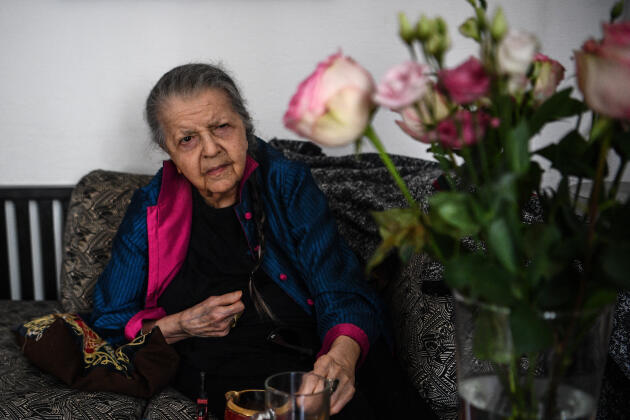

Madeleine Riffaud, French Resistance figure: 'After what we'd been through, we couldn't live like other people'
ConversationAt 99, Riffaud, a poet, journalist, and historic Communist activist, looks back on the 'kick in the ass' from a Nazi that changed her life.

Three days earlier, a fire had broken out in her living room. Madeleine Riffaud, 99, was alone in the apartment. Firefighters arrived just in time, and the former Resistance fighter survived once again. Blind and bedridden, the poet has retained a vivid memory of her incredible life and wanted to share her story – all while treating herself to one of the small cigars she appreciates in the middle of the interview.
I wouldn't be where I am today if...
... If I hadn't gotten a massive kick in the ass at Amiens train station in November 1940. It was a German officer who gave it to me because I refused his soldiers' advances. I fell to the ground. I don't like being humiliated, at a time when all of France was being humiliated. So that Nazi's kick pushed me to join the Resistance. But I still had to figure out how to get into it. I was only 16. Who'd want a kid like that in their network? It wasn't easy to find the right way in.
Why were you so keen to join the Resistance?
Maybe it came from the example set by my grandfather, a farm laborer, a really good guy who didn't want to run away from the enemy. And from my father, too. During the 1914-1918 war, he enlisted at the age of 18, mutinied and was seriously wounded. In 1936, when the Spanish Civil War broke out, he wanted to sign up again. He was turned down because of his bum left leg. My own political awakening also dates back to the Spanish War. In a magazine lying on my father's desk, I was struck by the photos of children caught up in the war and killed by Franco's regime. If I'd been old enough, I'd have gone there. But I was what? 12 years old? So my moment to join up had to wait.
Did your parents push you in this direction?
They would have liked me to be a teacher like them. But I didn't want to. And then, events kind of decided for me. I was born and spent my childhood in the Somme, a place scarred by war. Then came the exodus [the southward flight of French civilians in 1940], and we were bombed on the road by Stukas, German planes. I survived, as did my family. I was already a survivor!
How did you join the Resistance?
I fell ill quite opportunely, and in 1941, I was sent for six months to a sanatorium for students in Saint-Hilaire-du-Touvet, Isère (southeastern France), on the other side of the demarcation line. Its director, Daniel Douady, would hide Resistance fighters and Jews with false medical certificates. There was also a clandestine printing room downstairs, the key to which he kept in his pocket. At the sanatorium, I met Roger and Marcel Gagliardi, two brothers whose father was a friend of mine. Tuberculosis quickly took Roger's life.
You have 80% of this article left to read. The rest is for subscribers only.
